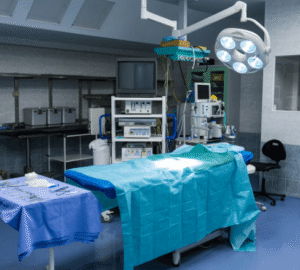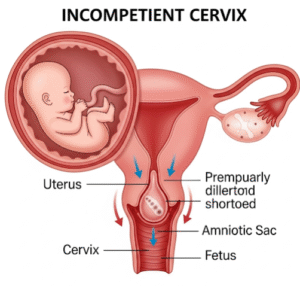Overview
Ectopic pregnancy is a medical condition in which a fertilized egg implants outside the uterine cavity, most commonly in the fallopian tube. Unlike a normal pregnancy, an ectopic pregnancy cannot develop into a viable fetus. If left untreated, it can cause life-threatening complications such as rupture, severe internal bleeding, and damage to reproductive organs. Early detection and prompt treatment are crucial to preserve the health and fertility of the patient. In South Korea, modern healthcare facilities provide advanced diagnostic and treatment options to manage this condition safely.
What is Ectopic Pregnancy?
An ectopic pregnancy occurs when a fertilized egg is unable to travel to the uterus and implants elsewhere. The fallopian tube is the most common site, but implantation can also occur in the ovary, cervix, or abdominal cavity. As the pregnancy grows, it can stretch and damage the surrounding tissues, potentially causing internal bleeding and life-threatening complications.
Symptoms
Symptoms often appear within the first few weeks of pregnancy and may mimic a normal early pregnancy. Warning signs include:
- Abdominal or pelvic pain, often localized on one side
- Vaginal bleeding or spotting
- Missed menstrual period
- Shoulder pain (can indicate internal bleeding irritating the diaphragm)
- Weakness, dizziness, or fainting, particularly if rupture occurs
Causes
Ectopic pregnancy occurs when the fertilized egg cannot reach the uterus due to various reasons:
- Blocked or damaged fallopian tubes from infection, inflammation, or surgery
- Scar tissue in the reproductive tract
- Previous ectopic pregnancy
- Fertility treatments like IVF
- Rarely, the use of intrauterine devices (IUDs)
Risk Factors
- Age above 35
- History of pelvic inflammatory disease or sexually transmitted infections
- Prior pelvic or abdominal surgeries
- Smoking
- Endometriosis
- Use of fertility treatments
- Previous ectopic pregnancy
Complications
If untreated, ectopic pregnancy can lead to:
- Ruptured fallopian tube, causing severe internal bleeding
- Shock, which can be life-threatening
- Infertility or reduced fertility due to tubal damage
- Emotional distress or anxiety regarding future pregnancies
Prevention
While not all ectopic pregnancies can be prevented, risks can be reduced by:
- Prompt treatment of sexually transmitted infections
- Avoiding smoking
- Regular gynecological check-ups, especially after pelvic infections or surgeries
- Awareness of early pregnancy symptoms and seeking immediate medical care if warning signs appear
Treatment Options in Korea
South Korea has advanced healthcare services with specialized obstetrics and gynecology care for ectopic pregnancies:
- Diagnosis
- Ultrasound imaging to locate the pregnancy
- Blood tests to measure hCG levels
- Pelvic examination for tenderness, swelling, or mass
- Medication
- Methotrexate is used to stop the growth of an early, unruptured ectopic pregnancy, preventing surgery in select cases
- Surgical Treatment
- Laparoscopic or open surgery to remove the ectopic pregnancy
- Salpingostomy (removal of ectopic tissue while keeping the fallopian tube intact)
- Salpingectomy (removal of the affected tube if necessary)
- Post-Treatment Care
- Monitoring hCG levels until they return to normal
- Guidance and counseling for future pregnancies
- Psychological support to manage the emotional impact
- Hospitals & Clinics
Major hospitals and clinics in Korea, such as:- Samsung Medical Center
- Asan Medical Center
- Seoul National University Hospital
- CHA Bundang Medical Center













